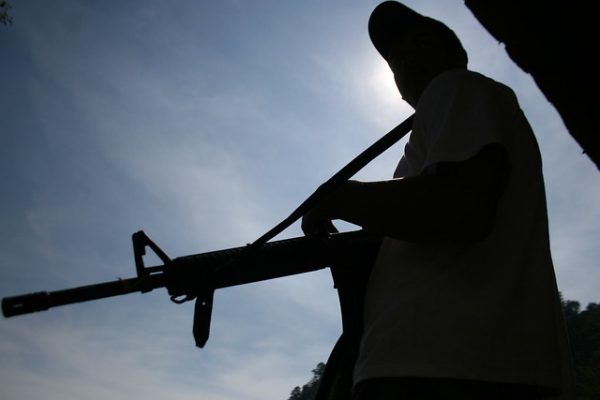
The Northern Triangle region of Central America — composed of the nations of Guatemala, Honduras, and El Salvador — is considered one of the most violent regions in the world outside of a war zone. In addition to a de facto state of war against highly organized and well-armed nonstate actors, extrajudicial killings by both the police and citizens of local gang members and criminals reveal both the ineffectiveness of state action in preventing violence and the desperation of local communities for security. Research on vigilante forms of justice in the region demonstrates how weak state institutions, like inadequate police forces, inefficient judicial systems, and corruption, can contribute to citizens taking the law into their own hands to provide justice and security in their communities.
Ineffective and inaccessible criminal justice institutions create a void that fosters mob action and vigilante justice. In Latin America, linchamientos, a form of collective vigilantism, reflect communities’ dissatisfaction with state authority and the desire to have autonomy in their own affairs. In rural Guatemala, for example, linchamientos have been considered a legacy of the nation’s brutal civil war (1960-1996). Today, they still function as a form of community justice against local criminals, due to the perceived corruption, inefficiency, and illegitimacy of official police forces.
- Francis Fukuyama. 2004. “The Imperative of State-Building.” Journal of Democracy 15(2): 17-31.
- Jim Handy. 2004. “Chicken Thieves, Witches, and Judges: Vigilante Justice and Customary Law in Guatemala.” Journal of Latin American Studies 36: 533-561.
- José Miguel Cruz. 2016. “State and Criminal Violence in Latin America.” Crime, Law and Social Change 66(4): 375-396.
- José Miguel Cruz and Gema Santamaría. 2019. “Determinants of Support for Extralegal Violence in Latin America and the Caribbean.” Latin American Research Review 54(1): 50–68.
Widespread political problems generate conditions of ‘statelessness’ in which citizens are more likely to ignore legal avenues of conflict resolution to engage in violent “self‐help.” In Guatemala and Honduras, for instance, conflicts over land have fostered a continuous cycle of violence between peasants and elites. State ineffectiveness not only incentivises citizens to take justice into their own hands, but also enables the expansion of private security, the militarization of police forces, and even alliances between vigilante groups and the state’s armies. In Mexico, when the police have fallen short of providing adequate security in the last decade, organized vigilante groups have battled powerful drug cartels. The Mexican state has assimilated these groups as a way to both expand the fight against crime and keep vigilantes under its control.
- Teresa Caldeira. 2012. “Fortified Enclaves: The New Urban Segregation.” Pp. 419-427 in The Urban Sociology Reader. Routledge.
- Amy E. Nivette. 2016. “Institutional Ineffectiveness, Illegitimacy, and Public Support for Vigilantism in Latin America.” Criminology 54(1): 142-175.
- Gema Santamaría. 2015. “Drugs, Gangs and Vigilantes: How to Tackle the New Breeds of Mexican Armed Violence.” Estudios Internacionales 181: 115-134.
In a number of cases in Latin America, the inability of states to provide social order, security, and justice has led citizens to take up arms and attempt to do it themselves. Just as vigilante justice can challenge the power of the state and support for democratic governance, however, confidence in law enforcement can strengthen democracy by reducing the need for extralegal justice.
- Daniel Zizumbo-Colunga. 2017. “Community, Authorities, and Support for Vigilantism: Experimental Evidence.” Political Behavior 39: 989-1015.

Comments